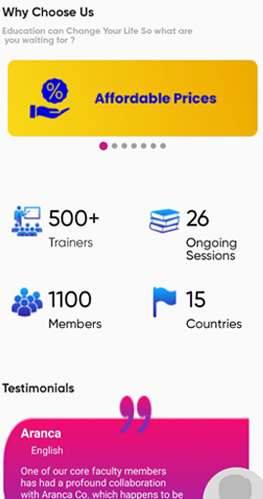In the contemporary globalized world, English has emerged as the lingua franca of business, science, technology, and international diplomacy. The ability to communicate effectively in English is not just an asset but a necessity for success in many professional fields. Knowing English is very important these days especially if you aim to job in MNC. However, one can easily achieve fluency in English with the right method. English classes or courses are some of the best ways to start. This article explores why learning English is vital for workplace success and how it can significantly enhance one’s career prospects.
- The Global Language of Business
English is often considered the global language of business. Companies operating in international markets use English as their primary mode of communication. Whether it’s negotiating deals, drafting contracts, or managing international teams, proficiency in English is crucial. For instance, multinational corporations often conduct meetings, send emails, and create reports in English to ensure clear communication across diverse geographical locations. Without a solid command of the language, employees may find it challenging to participate effectively in these crucial business activities.
- Enhancing Career Opportunities
One of the most compelling reasons to learn English is the enhanced career opportunities it brings. Many employers, especially those with global operations, prioritize candidates who are proficient in English. Job postings in various industries, from finance and technology to healthcare and engineering, often list English proficiency as a key requirement. This is because English-speaking employees can interact seamlessly with clients, partners, and colleagues from different parts of the world, thereby adding significant value to their organizations.
- Access to Knowledge and Information
English is the dominant language of the internet and academic publishing. A vast majority of online content, research papers, and technical manuals are available in English. By mastering the language, professionals can access a wealth of information and stay updated with the latest developments in their fields. For example, a software engineer proficient in English can read and understand the latest programming documentation, participate in global forums, and contribute to open-source projects, thereby staying at the cutting edge of technology.
- Effective Communication Skills
Effective communication is the cornerstone of workplace success. English proficiency enables employees to articulate their ideas clearly and confidently. This is particularly important in roles that require frequent interaction with clients and stakeholders, such as customer service, marketing, and management. Moreover, strong English communication skills can enhance one’s ability to network, present ideas in meetings, and contribute to collaborative projects. This, in turn, can lead to greater visibility within the organization and open up opportunities for career advancement. If you want to improve your communication then you can consider English classes in Mumbai or English courses in Mumbai.
- Cultural Competence and Adaptability
In an increasingly multicultural workplace, the ability to understand and respect different cultures is invaluable. English, being a global language, exposes learners to diverse cultures and perspectives. This cultural competence is highly valued in the workplace, as it fosters an inclusive environment and enhances team collaboration. For instance, an employee who can communicate effectively in English and understand cultural nuances can build stronger relationships with international clients and colleagues, leading to more successful and harmonious business interactions.
- Competitive Edge in the Job Market
In a competitive job market, having an edge over other candidates is crucial. Proficiency in English can provide that edge. It demonstrates a commitment to personal development and a willingness to go beyond the basics to achieve excellence. Employers recognize this and often view English proficiency as a sign of a candidate’s ability to adapt to different work environments, learn new skills, and take on challenging tasks. As a result, candidates with strong English skills are more likely to be shortlisted for interviews and considered for promotions.
- Leveraging Technology and Innovation
The tech industry is one of the fastest-growing sectors globally, and English is its primary language. From coding languages to software interfaces, English is deeply embedded in technology. Professionals who are proficient in English can easily navigate tech tools, understand technical documentation, and participate in online tech communities. This fluency not only helps in performing day-to-day tasks more efficiently but also enables professionals to innovate and contribute to technological advancements within their organizations.
- Building Confidence and Self-Esteem
Learning English can significantly boost an individual’s confidence and self-esteem. In the workplace, this translates to a more assertive and proactive approach to tasks and interactions. Confident employees are more likely to take initiative, share their ideas, and lead projects. This confidence, fueled by language proficiency, can enhance an individual’s reputation as a competent and reliable professional, paving the way for career growth and leadership opportunities.
Conclusion
In today’s interconnected world, English proficiency is more than just a skill; it is a gateway to numerous professional opportunities and success. From enhancing career prospects and access to information to fostering effective communication and cultural competence, the benefits of learning English are manifold. For anyone looking to excel in their career, investing time and effort in mastering English is a strategic move that can yield significant long-term rewards. So enrol in the best English institute in Mumbai to start learning English.



















